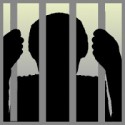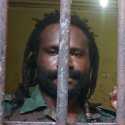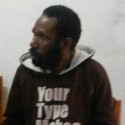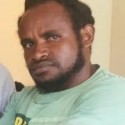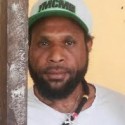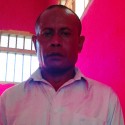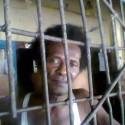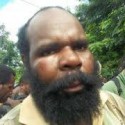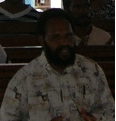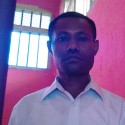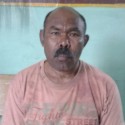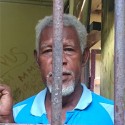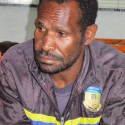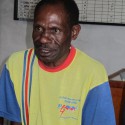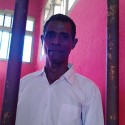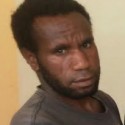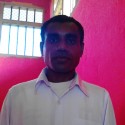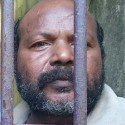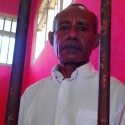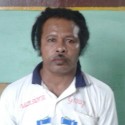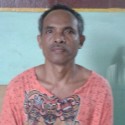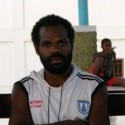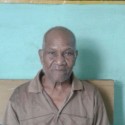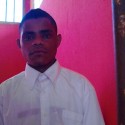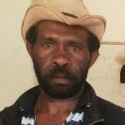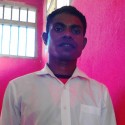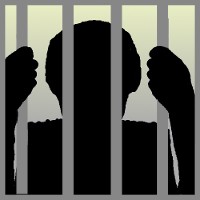
Patrisius Aronggear was studying at Stikom in Tanah Hitam before he was arrested and sentenced to five years imprisonment as a consequence of the violence surrounding the 16th of March 2006. A picket had started the day before, demanding the closure of the Freeport mine in Tembagapura and the withdrawal of the police and military from the area. The Justice and Peace Secretariat (Sekretariat Keadilan dan Perdamaian or SKP) have published a detailed daily chronology of the events as they unfolded in 2006 later compiled into a book “Memoria Passionis di Papua”. They record that clashes began at 12.15 on the 16th as some demonstrators threw stones and bottles at the police, and then the confrontation intensified as police tried to storm the blockade. Three policemen and one Air Force Intelligence officer died in the fighting, and another policeman was to die from his injuries on March 22nd.
Mr Aronggear was arrested soon after the disturbances. He was charged with Article 214 of the Indonesian Penal Code, which refers to resistance to authority when committed as part of a group.
All 23 men who were indicted in the aftermath of the Abepura clashes were subjected to various degrees of torture, which were later investigated by the Indonesian Working Group on the Advocacy Against Torture. Mr Aronggear complained that he was kicked, slapped and punched at the Papuan Provincial police headquarters, and his lower lip was torn as a result.
Sixteen of the twenty-three indictees were tried together, and usually appeared in court on the same day. Several groups have highlighted the trial process as particularly unfair, and characterised by intimidation. For example, the ‘Advocacy team for the Abepura Clash of 16 March 2006’ published a report into the trial proceedings. Their report claimed that the prosecutor and judges were focussed on reaching an outcome that was already decided. They based their arguments on the initial interrogation reports (BAP) which most of the defendants refuted as they contained statements made under torture.
The atmosphere in the trial was said to be intimidating with several uniformed and plain-clothes police and intelligence agents present at each session. At two sessions, on the 17th and 24th May, defendants were injured or received death threats from police Mobile Brigade Brimob) members after they rejected the indictments. Meanwhile Amnesty International has reported that police beat the men with rifle butts and rubber batons two hours before they were due to appear in court, to try to force them to confess.
Patrisius Aronggear was sentenced to five years in prison on the 24th July 2006.
Sources
SKP Jayapura, 2008 “Memoria Passionis di Papua 2006”, http://www.papuaweb.org/dlib/baru/skp-2008-mp2006.pdf
Indonesian Working Group on Advocacy against Torture, May 2008, “Annex-Shadow Report” http://www.elsam.or.id/downloads/1266673146_Annex_Shadow_Report_CAT.pdf
Advocacy team for the Abepura clash of 16 March 2006, 21 August 2006, “The report of the hearing of the case relating to the clash in Abepura on 16 March 2006 in the Abepura state court. ” http://www.faithbasednetworkonwestpapua.org/userfiles/files/FurtherReading/GFSR(1).pdf
Amnesty International, 31 August 2006, Urgent Alert 234/06, http://www.amnesty.org/en/library/asset/ASA21/013/2006/en/e25384c7-f9d4-11dd-b1b0-c961f7df9c35/asa210132006en.pdf



